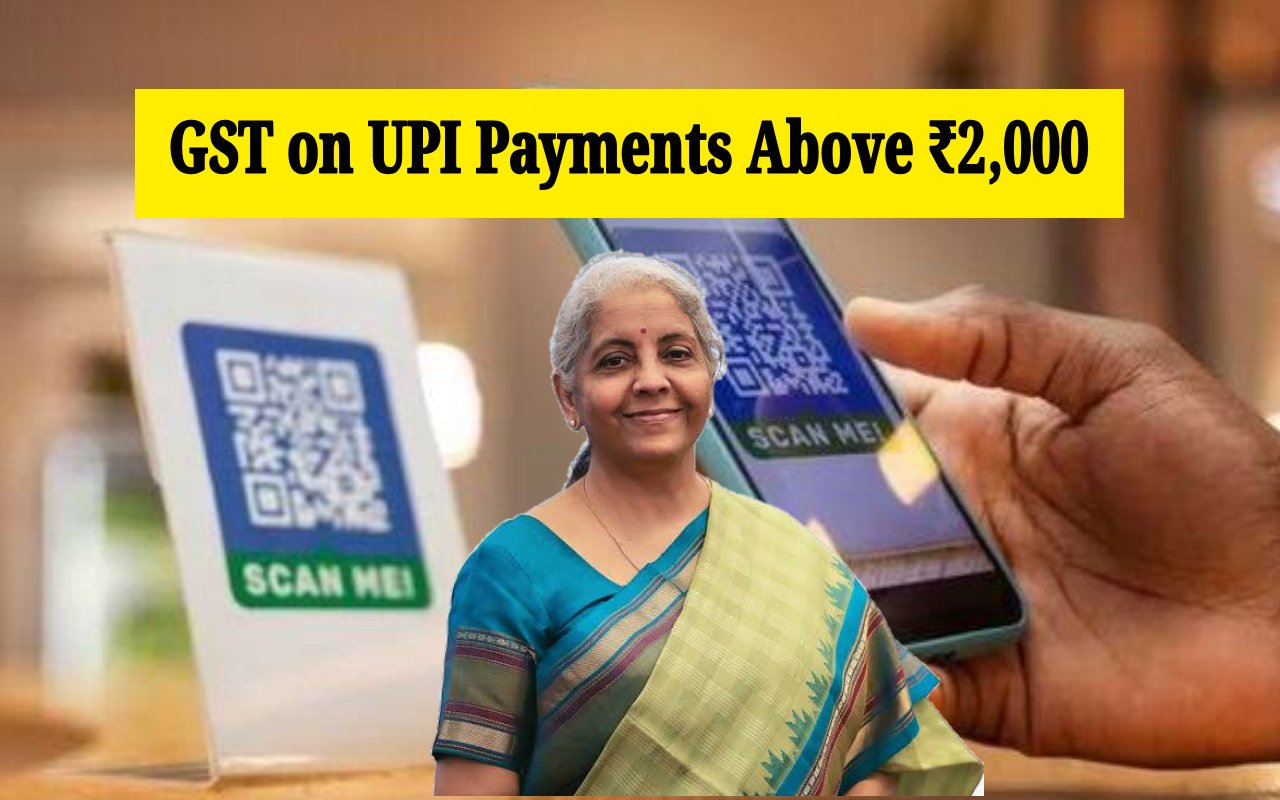UPI has revolutionized digital transactions in India. From buying everything like groceries to paying for online services, UPI has made money transfers instant, secure, and hassle-free for all. However, recent reports suggest a potential GST implication on UPI payments above ₹2,000, particularly for business transactions. Let’s break down what this new rule means for regular users, freelancers, and small business owners. If you also make transactions using UPI, then it is important for you to understand this matter in detail.
What Is UPI and Why Is It So Popular?
UPI is a real-time payment system developed by the National Payments Corporation of India (NPCI). It enables users to transfer money between bank accounts instantly using just a mobile number or QR code. Popular apps like PhonePe, Google Pay, and others rely on this technology. India is the only country in the world that has achieved remarkable success through UPI transactions.
Key Features of UPI:
- 24×7 instant transfers
- Cashless and paperless secure payments
- QR code-based or mobile number-based secure payments
- Widely accepted by small businesses and individual users
What Is the New GST Rule?
Recent updates indicate that UPI payments exceeding ₹2,000 for business purposes may attract Goods and Services Tax (GST). With the introduction of the new GST rules on UPI transactions, everyone is feeling concerned and uncertain about its implications.
Key Points of the Rule:
- Personal UPI transactions (sending money to friends or family) will remain tax-free.
- Business-related UPI transactions above ₹2,000 may be subject to GST.
- Merchants accepting such payments might need to register for GST and include it in their invoices.
Example to Understand the New Rule
Let’s say you purchase items worth ₹2,500 from an online store and pay via UPI. If this transaction is business-related, the merchant is expected to charge GST, which will be clearly mentioned in your bill. However, sending ₹3,000 to a friend through UPI will not attract any GST. This means that if you purchase any goods using UPI, then you will be required to pay GST. Otherwise, no GST will be applicable on your transaction.
Who Should Be Concerned?
For General Customers:
- No need to worry if you’re using UPI for personal payments.
- There will be no additional charges on your part.
For Businesses and Freelancers:
- If you accept UPI payments above ₹2,000 regularly for commercial purposes, you may need to register for GST.
- Maintaining accurate transaction records becomes essential.
- Freelancers receiving high-value UPI payments should stay compliant with tax norms.
Difference Between Personal and Business UPI Transactions
| Category | Personal UPI Payments | Business UPI Payments |
|---|---|---|
| Tax Applicable? | No | Yes, if above ₹2,000 |
| GST Registration | Not Required | Required (if turnover limit crossed) |
| Example | Sending ₹3,000 to a friend | Receiving ₹5,000 from a client |
| GST in Invoice | Not Applicable | Mandatory for businesses |
| Impact on Customer | None | Customer may see GST in bill |
Impact on Small Businesses and Freelancers
The proposed rule aims to bring transparency to business transactions and improve tax collection. However, it may lead to confusion among small vendors and freelancers who rely heavily on UPI for daily transactions. If small business owners are required to pay GST on their daily transactions, it can become a matter of serious concern for them.
Possible Effects:
- Small business owners may increase prices to compensate for GST.
- Better record-keeping and invoicing systems will be necessary.
- Some might shift to alternative payment methods to avoid complications.
How to Stay GST-Compliant as a Business Owner
- Track Annual Turnover – Ensure you know if your earnings exceed GST thresholds.
- Get GST Registered – Apply early to avoid penalties.
- Issue Proper Invoices – Reflect GST details transparently.
- Maintain Records – Keep digital and paper records of all transactions.
- Consult a Tax Expert – Get advice tailored to your business type.
FAQs
Q1. Will every UPI payment above ₹2,000 be taxed?
A: No. Only business-related transactions are subject to GST, not personal ones.
Q2. Do I need to pay GST if I send money to a friend?
A: No, personal transfers are completely exempt from GST.
Q3. Will QR code payments also attract GST?
A: If it’s a business transaction, yes.
Q4. What is the GST rate applicable?
A: It varies depending on the goods or services involved – typically 5%, 12%, 18%, or 28%.
Q5. Will merchants charge extra from customers?
A: GST will be included in the bill; the merchant may adjust pricing accordingly.
Should You Be Worried?
Not really. For regular users, nothing changes. Continue using UPI for personal transactions as before. But if you’re a freelancer, entrepreneur, or small business owner, it’s wise to take note of these changes and adapt your accounting practices accordingly.
India’s UPI system has been a global success story. With the introduction of GST norms, the goal is not to burden the common man but to ensure transparency in high-value business transactions. So, whether you’re sending money to a friend or receiving payments for your work, understanding the difference between personal and commercial UPI usage is the key.

ME News is providing genuine and authentic News. We cover news related to Automobile, Scholarship, Apartment, Mahindra, Result and Others Trending News. Please Follow Us regularly for stay updated.

